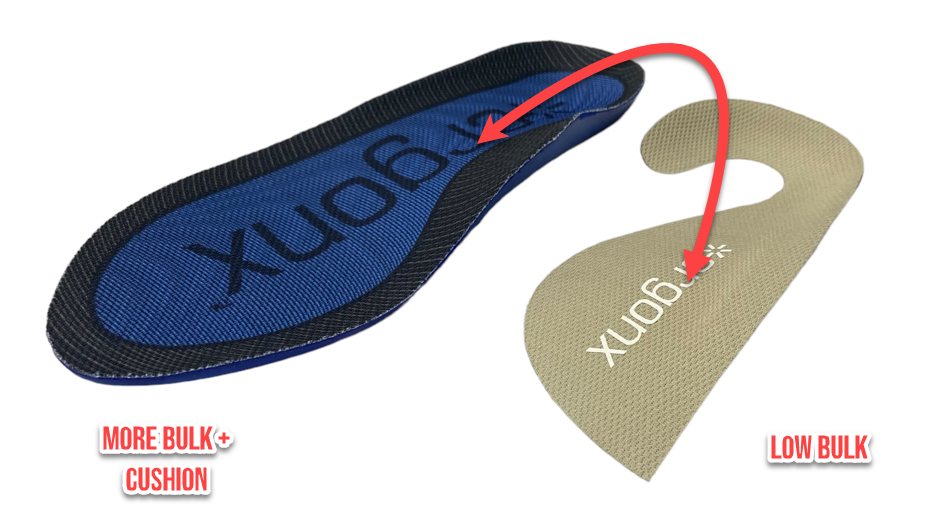Choosing the right orthotic insoles for your shoes can significantly enhance comfort, support, performance of the orthhotics, and overall foot health. However, it’s crucial to ensure a proper fit to maximize the benefits. In this guide, we’ll address some common questions about matching orthotic insoles to your shoes and help you make the right choices.
Do you get insoles the same size as your shoe?
One of the most common inquiries is whether orthotic insoles should be the same size as your shoes. In most cases, the answer is yes. Orthotic insoles are typically designed to fit snugly inside your shoes, providing support and stability. Therefore, it’s advisable to choose insoles that match the size of your shoes.

Do you need a bigger shoe size for orthotics?
While getting insoles the same size as your shoes is generally recommended, there may be instances where you need a slightly bigger shoe size to accommodate orthotics comfortably. Some orthotic insoles, such as those with added arch support or cushioning, can take up extra space inside the shoe. If you find that your shoes feel too tight with the insoles, consider trying a half-size larger to ensure a proper fit. Choosing a slimline orthotic insole can also help to fit into a shoe with limited room.

How do I know my shoe insole size?
Determining your shoe insole size is relatively straightforward. Most shoe brands provide sizing charts that indicate the corresponding insole measurements. You can measure your foot length and width using a ruler or consult a professional shoe fitter to determine the appropriate insole size for your shoe size. Remember to take into account any specific sizing instructions provided by the manufacturer of the orthotic insoles you’re considering. If you remove the current liner from your shoe and measure this against the orthotic insole this will help to confirm the fit.

Should I size up or down for orthotics?
When it comes to sizing up or down for orthotics, it depends on your specific needs and the type of insoles you’re using. If your shoes are already a snug fit, sizing up may be necessary to accommodate the additional volume of the orthotic insoles. On the other hand, if your shoes are slightly loose, sizing down could help maintain a secure fit with the insoles. Consider the overall fit of your shoes and the recommendations provided by the orthotic insole manufacturer to make an informed decision.
Recommended Orthotic Insoles:
To assist you in finding the right orthotic insoles for your needs, here are a few recommendations:
- Soft Orthotic Insoles (Max support and cushioning): For individuals seeking exceptional cushioning and comfort, the Ergonx Ultra Soft insoles are an excellent choice. These insoles provide gentle support and alleviate pressure points, making them ideal for everyday wear.
- Low Bulk Slimline Insoles (For Tight Shoes): If you prefer a slimmer profile that fits well in most shoe types, consider the Ergonx Slimline insoles. Despite their low bulk design, they offer reliable arch support and shock absorption.
- Orthotic Insoles for Sports (Firm High Arch Support) : Athletes and active individuals can benefit from the specialized support provided by Ergonx Sports insoles. Designed to enhance performance and reduce discomfort during physical activities, these insoles offer excellent stability and impact protection.
Matching orthotic insoles to your shoes is crucial for ensuring optimal comfort and support.

